Response to COVID-19
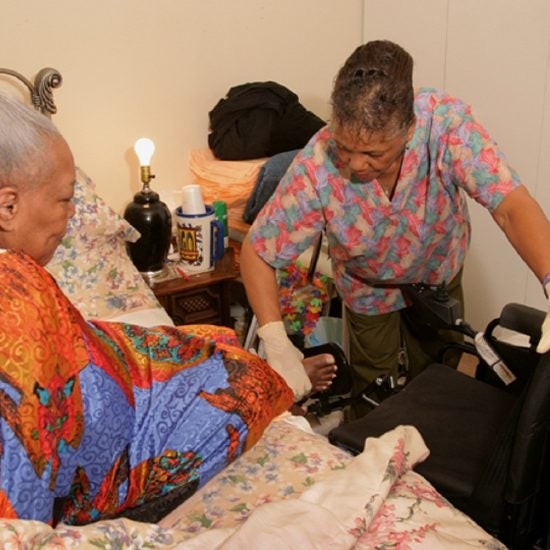
COVID-19 Guide for Workers in Illinois Heading link
Pandemic COVID-19 presents an unprecedented challenge for workers in Illinois and across the nation. The UIC Center for Healthy Work, Great Lakes Center for Occupational Health and Safety, and the Policy, Practice and Prevention Research Center are providing information about benefits available to those employed in Illinois to ensure the safety and health of Illinois workers and their families.
The guide was up-to-date as of June 5, 2020.
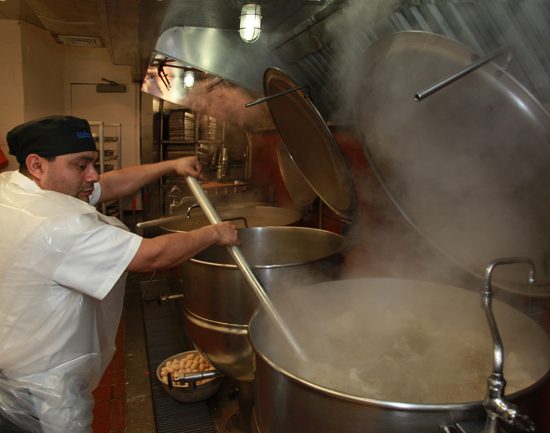
Guía para los trabajadores de Illinois durante la COVID-19 Heading link
Guía de prestaciones y beneficios para los trabajadores de Illinois durante la COVID-19
La pandemia de la COVID-19 presenta un desafío sin precedentes que valida la idea que la salud del trabajador equivale a la salud pública. El Centro para el Trabajo Saludable (Center for Healthy Work, CHW), el Centro para la Salud y Seguridad Ocupacional de los Grandes Lagos (Great Lakes Center for Occupational Health and Safety, GLC-OHS) y el Centro de Investigación de Políticas, Prácticas y Prevención (Policy, Practice, and Prevention Research Center, P3RC) de UIC comparten un compromiso profundo para proveer recursos e información a trabajadores, empleadores, organizaciones que abogan por los trabajadores y a sus aliados a lo largo de Illinois para asegurar la seguridad y salud de los trabajadores, sus familias y comunidades.
General Information and Table of Contents Heading link
UIC’s COVID-19 Public Health Response
As the world addresses the effects of the COVID-19 outbreak, faculty and researchers at the University of Illinois at Chicago (UIC) School of Public Health are playing leading roles in the response in Chicago, Cook County and the State of Illinois. Refer to their website here for the latest updates and resources, including checking for symptoms, contacting your local health department and accessing COVID-19 fact sheets. The School of Public Health has further information available here.
Visit the Centers for Disease Control and Prevention (CDC) website for information about how to prevent the spread of COVID-19 and what to do if you get sick.
If you are concerned about your safety at work and you would like to identify if your employer is doing enough to keep you and your co-workers safe, use this tool from AFL-CIO.
Other resources will be shared below to help protect the health and safety of workers and communities.
Site Contents:
- Center for Healthy Work Policy Brief: Why Paid Sick Leave is an Effective Treatment Against Coronavirus
- Great Lakes Center for Occupational Safety and Health Brief: A Call to Action for Public Health – Protecting the Health and Safety of our Essential Workers
- Who to Contact if You or a Family Member May Be Sick
- Resources from WHO, CDC, Centers of Excellence for Total Worker Health, & Governmental Agencies
- Illinois Resources
- Chicago Resources
- Resources for Immigrants and Refugees/Recursos para Inmigrantes
- North Lawndale Community Impact Survey
- Additional Resources
- Volunteer Opportunities
- Preventing the Spread of COVID-19
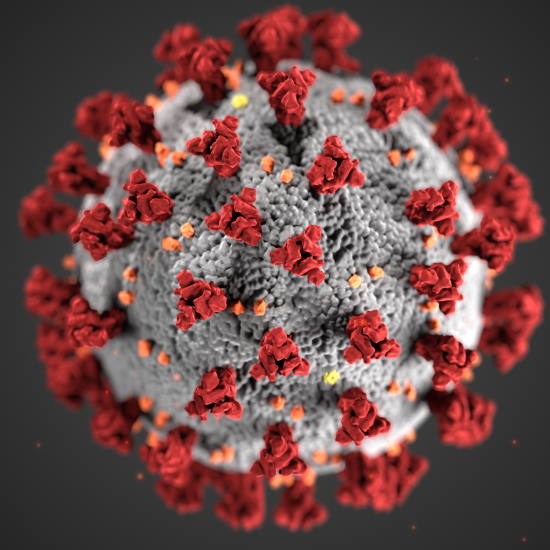
Why Paid Sick Leave is an Effective Treatment Against Coronavirus Heading link
In 2016 the City of Chicago passed an ordinance to provide workers with up to 40 hours of paid sick leave per year. Cook County quickly followed with a similar ordinance, but 112 of 133 suburban municipalities surrounding Chicago have since opted out of the ordinance, utilizing their home rule authority to claim that it was too costly for business owners. With the outbreak of COVID-19 (the Coronavirus) it is apparent why paid sick leave is vital for the health—and the economy– of the nation. Yet, millions of workers are not entitled to paid sick leave…
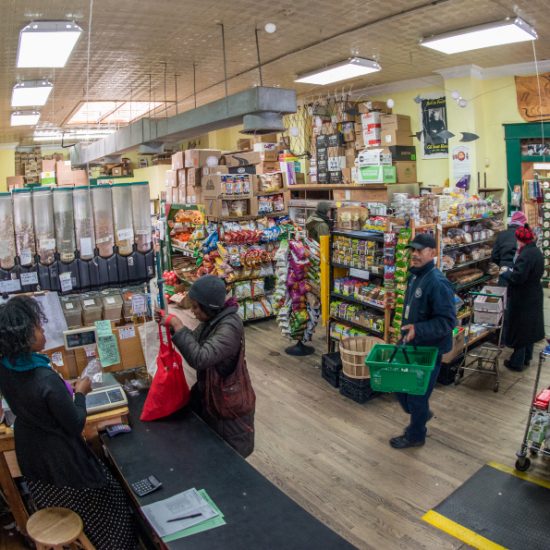
A Call to Action for Public Health Heading link
As the coronavirus crisis continues, essential workers’ needs will increasingly become more urgent, and stark. There is an enormous responsibility to take care of our workers and provide the tools needed by workers who are risking their lives by having to continue to work outside the home. The actions of Illinois government and the public health resources in the State in the coming weeks could prevent larger outbreaks in essential workplaces and lay the foundation for an organized strategy that can also be scaled up when workers in non-essential industries begin to return to work.
Who to Contact if You or a Family Member May Be Sick Heading link
- Illinois-specific information can be found at the Illinois Department of Public Health’s COVID-19 website. Illinois Department of Public Health. Phone 1-800-889-3931 or Email: SICK@ILLINOIS.GOV for additional questions.
- Chicago-specific information can be found at the Chicago Department of Public Health’s COVID-19 website. Chicago Department of Public Health. Phone: 312-746-4835 or Email: coronavirus@chicago.gov for additional questions. This website will be updated with additional guidance as it becomes available.
- Cook County-specific information can be found at the Cook County Department of Public Health Novel Coronavirus Outbreak website. Cook County Department of Public Health.
NIOSH Extramural Centers’ COVID-19 Response
Resources from the WHO, CDC, Centers of Excellence for Total Worker Health, & Governmental Agencies Heading link
- Visit the Centers for Disease Control and Prevention (CDC) website for information about how to prevent the spread of COVID-19 and what to do if you get sick.
- Interim Guidance for Businesses and Employers to Plan and Respond to Coronavirus Disease 2019, National Institute for Occupational Safety and Health
- Getting Your Workplace Ready for COVID-19, World Health Organization
- The COVID-19 Risk Communication Package for Health Care Facilities, World Health Organization
- Click here to view Occupational Safety and Health Administration’s Guidance on Preparing Workplaces for COVID-19.
- Click here to view the Small Business Administration’s Guidance and Loan Resources.
- The National Institute of Environmental Health Sciences Worker Training Program has been tracking information about the COVID-19 as it pertains to protecting workers involved in emergency response and cleanup activities performed in the United States. Click here for more information.
- The CareerOneStop has collected resources from the U.S. Department of Labor and other government agencies. Click here to view the resources.
- The World Health Organization is hosting a multi-part free training titled Occupational Health and Safety for Health Workers in the Context of COVID-19.
Centers of Excellence for Total Worker Health
- The Center for Health, Work, and Environment is conducting weekly, free, Town Hall Webinars to help employers and individuals connect with experts as we address COVID19. The site also features Employer and Employee Resources.
- The Healthier Workforce Center has provided COVID-19 Employer Resources.
- The Oregon Healthy Workforce Center is providing Workplace Resources for COVID-19.
- The Center for Work, Health, and Well-Being has posted Protecting front-line workers: Steps employers and workers can take in response to the coronavirus (COVID-19).
- The Center for the Promotion of Health in the New England COVID-19 Workplace Preparedness Resources
Illinois Resources Heading link
Unemployment benefits are available to some people in Illinois whose unemployment is attributable to COVID-19. Illinois Department of Employment Security (IDES) recently adopted emergency rules to try to make the unemployment insurance system as responsive to the current situation as possible. Learn more by clicking here.
Apply for unemployment assistance, call 800-244-5631 or click here. You can also click here for assistance on how to fill out unemployment assistance forms.
Legal Aid Chicago has created a helpful graphic to help you understand if you are eligible for unemployment here.
- Apply for SNAP (financial assistance for food) here.
- Click here for Steps to Take If You Can’t Make Ends Meet Because of the Coronavirus.
- Click here to learn more about emergency grants being offered to bartenders, barbacks, and cocktail servers.
- College/university students displaced from dorms:
- Hotel Essex in the South Loop has a special $59-a-night rate for students on stays through April 30. Call 312-939-2800.
- Radison Blue is $99 a night through April 30. Call the front desk at 312-565-5258.
- West suburbs: Residence Inn Oak Brook has extended-stay suites. Students can stay here for a reduced rate of $79. Call 630-571-1200.
- Restore Justice wants to know if you still have access with your incarcerated loved one since the Illinois Department of Corrections has suspended all in-person visits. Click here to fill out the form.
- Click here for more info from Restore Justice.
- Bright Star Church & Bright Star Community Outreach offers a free Trauma Helpline, now with extended operating hours. Call 833-TURN-123 for assistance or visit their website.
- Legal Aid Chicago has developed resources on paid sick leave in Chicago and Cook County and unemployment in Illinois. Additional resources on state and federal leave laws and other benefits are available on their website.
- The Illinois Department of Commerce and Economic Opportunity has developed a flowchart of who needs to be working and how to manage compliance with prevention principles. Click here to view the flow chart.
- Illinois Department of Human Services has created a survey to identify personal protective equipment (PPE) needs across the state. Click here to fill out the survey.
- The Shriver Center on Poverty Law has created resources for individuals and families in Illinois.
- Nursing home workers in Illinois can report workplace health or safety concerns using this form. All responses are confidential.
- Arise Chicago has developed the Return to Work Safely Guide for working during the pandemic in English, Spanish, and Polish.
- Migrant farmworkers can find guidance developed by the state of Illinois here. Landlords of migrant labor camps can find guidance here.
Chicago Resources Heading link
- Click here for information about rental assistance. This program assists with rent payment but not security deposits, and the city still requires people to show up in person to apply. Chicago residents can apply at one of the six Community Service Centers.
- For additional guidance about rental assistance fill out this form.
- Chicago Public Schools are offering free meals to families while schools are closed. Click here for more information.
- The Chicago Workers’ Collaborative is offering free legal consultations via telephone. They have also scheduled free virtual Know Your Rights workshops! Topics include: Record Expungement, Immigration and OSHA. Visit their website for more information.
- Click here for Greater Chicago Food Depository resources.
- To request ‘Meals on Wheels’ for service industry workers click here.
- The Chicago Community COVID-19 Response Fund is working in conjunction with the City of Chicago to support local non-profits providing aid to vulnerable populations.
- Equity and Transformation has developed the COVID-19 Life Kit Community Care & Mutual Aid for those who work in the informal economy.
- Resources from the Chicago Department of Public Health and UIC Collaboratory for Health Justice are available in English, Spanish, Arabic, Haitian-Creole, Hindi, Polish. More languages are available here.
- Additional Chicago resources can be found by clicking here.
Chicago’s West Side:
- For resources in the North and South Lawndale and La Villita neighborhoods click here.
- Forty Acres Fresh Market (5051 W Chicago Ave) is delivering fresh produce citywide Monday through Friday between 7-10 p.m. and on weekends from 6-10 p.m. Call: (847) 497-5435
- The North Lawndale Community Coordinating Council is working to ask community members and community partners what are the current and upcoming needs in the community. Click here to fill out the survey.
- The Erie House has created a Community Relief Fund to assist its clients who may be undocumented or self-employed.
Chicago’s South Side:
- Brave Space Alliance is operating a crisis food pantry for the LGBTQ community on the South Side. To have food or other supplies dropped off at your front door, please click here.
Chicago’s North Side:
- Lakeside Area Neighbors Association (Uptown) is receiving requests for meals or medicine to be left at your door, to ask for a ride to an urgent care facility or physician’s office if you are feeling unwell, or simply ask that someone call you at a specific time to check in. You can also text the hotline if you have resources to share.
- Call or text 312-834-3510 (leave a message)
- Email: lakesideneighbors46@gmail.com
- Click here to access Uptown Church’s online form to request assistance in Uptown or Edgewater.
- Ukranian Village neighbors have set up an email address for those who are immunocompromised, older, or have kids at home and need assistance. Email: UKVhelps@gmail.com
- Assistance from the 33rd Ward Ald. Rossana Rodriguez-Sanchez for Albany Park and Avondale can be found by clicking here.
Resources for Immigrants and Refugees Heading link
The UIC Collaboratory for Healthy Justice has created a resource and information guide for undocumented immigrants. Click here to view the guide.
This comprehensive guide was created to address the needs of the immigrant and refugee community in the state of Illinois. Click here.
Immigrants Rising is also committed to serving undocumented communities during the Coronavirus (COVID-19) pandemic. They have put together a list of resources to help undocumented immigrants navigate the crisis.
Click here to view the list of resources.
Please contact them if there are additional resources that you would like to add to this document. They will continue to update it as the situation develops.
Resources from the Illinois Coalition for Immigrant and Refugee Rights are available here.
Immigrant Workers’ Rights and COVID-19—A Resource for Workers and Their Advocates.
Recursos para Inmigrantes Durante la Crisis de COVID- 19
Esta guía integral fue creada para abordar las necesidades de la comunidad de inmigrantes y refugiado en el estado de Illinois. Si está buscando recursos en un estado diferente, vaya al siguiente documento COVID-19 Recursos para comunidades indocumentadas
Seguiremos actualizando esta lista mientras más información se haga disponible.
InmigranteInformado.com se dedica a aumentar el acceso a los recursos y el conocimiento para la comunidad inmigrante e indocumentada en los EE. UU. Entenden que estos tiempos son especialmente difíciles para las comunidad inmigrante que enfrentan desafíos únicos con la crisis del coronavirus y sus estatus migratorio.
Los siguientes recursos se actualizarán de manera continua. Si ve recursos para su ciudad o estado que son útiles para la comunidad indocumentada, por favor llene esta forma.
North Lawndale Community Impact Survey Heading link
As we all continue to navigate uncharted territories The North Lawndale Community Coordinating Council is working to ask community members and community partners what are the current and upcoming needs in the community.
Please complete this survey and provide as much information as possible.
Click here to fill out the survey.
Additional Resources Heading link
- Visit our Events Page for updated webinars and virtual events about COVID-19.
- Visit our News Page for updated information about COVID-19.
- Video: Protecting Yourself at Work During Coronavirus | Safety, Negotiation, and Organizing
- Video: Protegiéndose en el Trabajo Durante el Coronavirus
- If you are a long-term care employer, direct care worker, consumer, family member, other long-term care leader or advocate, please fill out the survey from PHI to help raise awareness, build support, and disseminate best practices for supporting the direct care workforce—and their employers—through these challenging times.
- You can view Access Living’s resources for the disability community by clicking here.
- To view COVID-19 resources for people who use drugs and substances click here. Information in Spanish can be viewed here.
- Click here to view policy briefs demonstrating that worker health is public health from the National Employment Law Project.
- Resources for gig workers from the Gig Workers Collective can be found here.
- The National Council for Occupational Safety and Health has posted resources for workers here.
- Resources on the care of pregnant and postpartum women during COVID-19 can be found here.
- The MassCOSH Health Tech Committee, a committee of occupational health and safety experts, has created the COVID-19 Essential Toolkit for Workers updated regularly to reflect the most recent information available in the field.
- See information for agriculture workers here.
- If you are a health care worker who has been exposed to or infected with the COVID-19 virus the George Washington University Milken Institute School of Public Health invites you to fill out their Health Care Worker COVID-19 Survey.
- Click here to view the Coronavirus Anxiety Workbook.
- Tips from counselors on how to manage financial stress during a crisis can be viewed here.
Volunteer Opportunities Heading link
- Kelly Hayes, a Chicago organizer, is asking for volunteers to do mutual aid work. Click here to fill out the form.
- Help the Brave Space Alliance get aid to LGBTQ folks on the South and West side by clicking here.
- Click here to access the Chicago Hardship and Help form.
- Ald. Sigcho-Lopez is asking for volunteers in Pilsen and Chinatown. Click here to volunteer.
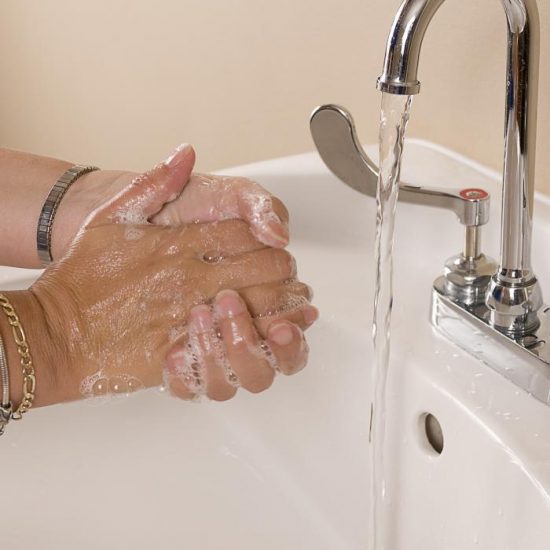
Preventing the Spread of COVID-19 Heading link
The best way to prevent illness is to avoid being exposed to this virus. Put distance between yourself and other people if COVID-19 is spreading in your community. This is especially important for people who are at higher risk of getting very sick.
1. Clean your hands often.
-
- Wash your hands often with soap and water for at least 20 seconds especially after you have been in a public place, or after blowing your nose, coughing, or sneezing.
- If soap and water are not readily available, use a hand sanitizer that contains at least 60% alcohol. Cover all surfaces of your hands and rub them together until they feel dry.
- Avoid touching your eyes, nose, and mouth with unwashed hands.
2. Stay home if you are sick.
3. Cover coughs and sneezes. Dispose of used tissues.
4. Clean and disinfect frequently touched surfaces daily.